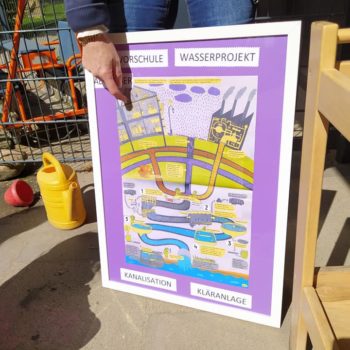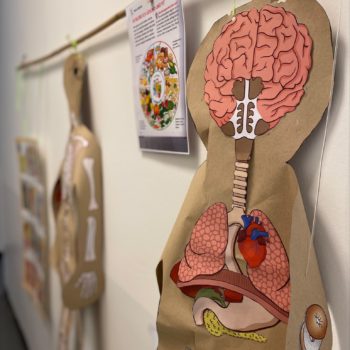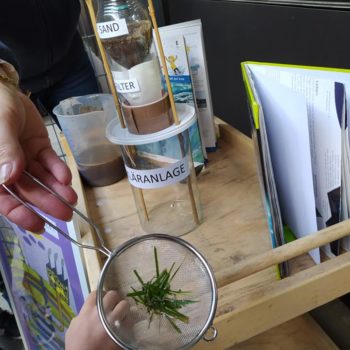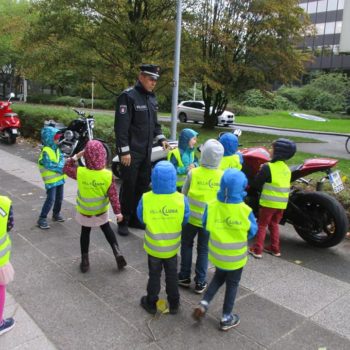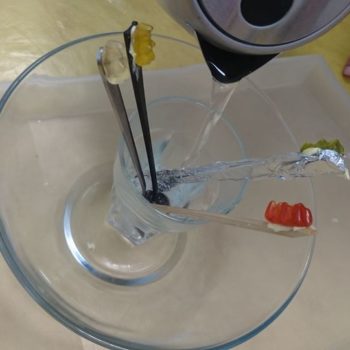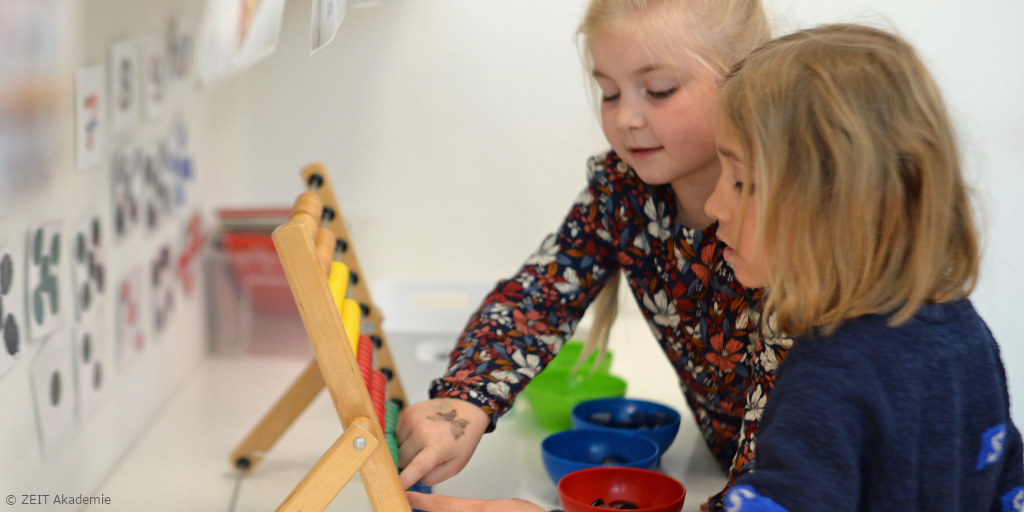
FROM KINDERGARTEN TO PRESCHOOL:
The pre-school period of a child begins in the broadest sense with its birth. Nevertheless, we welcome our prospective school children to a bilingual preschool program one year before the start of school so that the last year of kindergarten and the transition to school will be something very special for your child.

Based on the Hamburg Bridge Year (Hamburger Brückenjahr), our pre-school children attend the pre-school on fixed days in small groups. Our learning workshop then becomes their learning environment, where they work in German and English on topics related to the following focal points, which are based on the Hamburg educational recommendations:
- social skills
- emotional competency
- basic mathematical knowledge
- language competence
- letters and font
- basic scientific knowledge
- education in fine arts
- motor skills
It is particularly important for us to emphasize that we deliberately do not anticipate any school material. This means that we do not teach the children to read, calculate or write, but simply follow their natural curiosity to learn letters and numbers. Furthermore, we focus on promoting social aspects, group dynamics and concentration. Together with the children, we also develop special offers and projects that support the children individually in their skills, but do not overtax them.
The principle of “learning to learn” is a priority for us, because education in the daycare center means self-directed learning: The children open up their environment by acting and experimenting. They learn while playing and thus combine joy with learning. At our Villa Luna day care centre, we enable the children to participate in holistic learning processes from the first day of kindergarten until they enter school. We create as many conditions as possible for them to acquire all the skills and abilities that will help them in the future.
FROM KINDERGARTEN TO PRESCHOOL:
OUR BILINGUAL PRESCHOOL PROGRAM
Encouraging concentration
e.g. reading aloud, listening to and retelling children’s literature
Promotion of language skills
e.g. being able to communicate and express oneself verbally
Promoting fine motor skills
e.g. in differentiated painting, cutting or in dealing with things of daily life (e.g. in independent bread making)
Safety in motor skills
e.g. climbing or gymnastics (through age-appropriate movement activities)
Orientation and traffic safety
e.g. on excursions to the forest, project work within Hamburg
Promotion of group skills
e.g. in role-playing or developing game situations
Promotion of social competence
e.g. by taking responsibility for others




